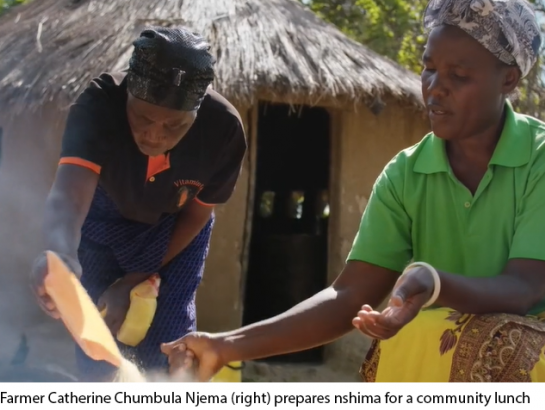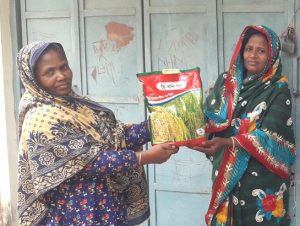Courtney Meyer
What if, in harvesting maize, farmers could also be harvesting a sort of “medicine” for their children?
Addressing and preventing micronutrient deficiencies through the development of more-nutritious maize and other staple crops drives the work of HarvestPlus. The program’s work is featured in an award-winning documentary by Iowa State University about the beauty and power of seeds.“Seeds! The Diversity of Wonder” is a six-part story told from the perspective of artists, breeders, farmers, and public servants. One segment of the documentary, “Let Seed Be Thy Medicine,” focuses on how crop breeders and economists considered whether seeds could be developed to provide a more sustainable solution to micronutrient deficiencies than dietary supplements—the premise of biofortification.
“Biofortification is the process [in the case of HarvestPlus] of using conventional plant breeding to develop high yielding, high mineral- and vitamin-content plants—staple food crops for production and consumption in developing countries,” said Howdy Bouis, founder of HarvestPlus and a World Food Prize laureate, who appears in the segment.
The segment presents the example of how maize biofortified with vitamin A was introduced to resource-poor families in Zambia who rely on maize for much of their diet. In a village outside of the capital of Lusaka, viewers meet maize farmers, breeders, champions, and companies spreading the word about the tasty, high-yielding, and brightly colored crop. The maize’s orange color comes from its beta-carotene content, a precursor to vitamin A missing from the diets of more than half of Zambia’s preschool-aged children.
“What a wonderful thing this is that we can breed maize that is so rich in vitamin A and place it in the hands of the farmers … and have them grow all these crops so that our children will eat and grow up without vitamin A deficiencies, stunting problems, poor vision, poor cognitive abilities, and poor immunity. All these things gone—because of nutritious seeds,” said former HarvestPlus country manager Eliab Simpungwe.
Research undertaken over the last 15 years has demonstrated that crop nutrient levels can be increased through biofortification without compromising yield, nutritional status and health measurably improve from regular consumption of these crops, farmers are willing to grow biofortified crops and consumers are willing to eat them, and biofortification is cost-effective.
Farmer Catherine Chumbula Njema explains how families prioritize their spending, and why biofortification is a practical solution. “Food is number one.
Nshima is number one,” she said, referring to the maize porridge that is a staple of meals.
Other episodes of the film explore the groundbreaking breeding work of World Food Prize Founder Norman Borlaug and the intricate network of seed vaults preserving the world’s biodiversity.
“Seeds are a miracle of nature and a product of science,” said Film Producer Walker Lambert of Pierce Mill Media.
“Seeds” premiered at Washington, D.C.’s Environmental Film Festival in spring 2019. Following additional screenings in Iowa, the film will be available for download and viewing in fall 2019.




